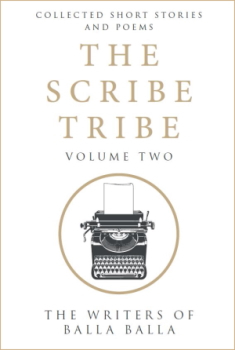The first writer I watched at work was my grandfather. He would close his study door and sit down to write a letter to his long-separated son and youngest daughter, one living in Melbourne and the other in faraway London. He had seen neither since they had left Colombo on their various life journeys many years previously.
The task was familiar to him as he wrote, every month, a personal commentary on the news from the country and of their siblings, living in a nation going through the growing pains of independence. The sounds of his typewriter came in hesitant bursts, with long silences in between. Hours went by. Summoned for lunch, he was often silent and preoccupied and soon excused himself to get back on the job. Finally, he would finish, grumbling that he should have done a better job, remembering things he should have included.
This image of my grandfather pecking away at his ancient Remington typewriter left a lasting impression in my mind. Writers have always created tangible memories for loved ones simply by writing things down. But writing is hard, even for writers who do it all the time. Less frequent practitioners often get stuck with an awkward passage or find a muddle on their screens and then blame themselves. What should be easy and flowing looks tangled and feeble or overblown – not what was intended at all. What’s wrong with me, each one thinks? Why can’t I get this right?
Writing is a lifelong process, and the best ones never stop learning or striving to improve their craft. Some stories strike through like lightning, coalescing and coming out fully formed. And when that happens – what a pure gift it can be. But more often than not, they trickle. They drip. There is some grit and tenacity involved in smoothing out the rawness.
The pandemic has made us all stand still and face the constantly breaking news that has changed our lives forever. What does it mean to continually have to respond creatively to what is happening around us? Now, more than ever is time to put onto paper all those stories that have accumulated since it all began as a record for the community and for future generations. As our ancestors once did, recording those bleak days in 1918 as they navigated their way through the Spanish Flu, many lessons hard-learned at that time have undoubtedly helped us in 2020.
The tragedies that unfolded since the beginning of the current decade have changed our world and affected almost everyone worldwide. The Scribe Tribe – Volume Two brings the reader stories from ‘The Writers of Balla Balla’, almost all current members of the long-established Scribe Tribe Writing Group at the Balla Balla Community Centre in the City of Casey, Melbourne. This volume details the group’s experiences during these difficult times, together with a selection of short stories and poems written during the various lockdowns.
It’s increasingly difficult to know what stories you will receive when you begin a project of this nature. The day and age of massive organisations taking care of us from beginning to end are over. But that is exciting news. It means that we choose the life we want for ourselves. It’s about people reinventing themselves and starting new conversations for their being. For the authors in this book, it has clearly come in the form of being able to engage with one another and in being able to share their stories and reflections of living in this time and this place, within the broader context of Covid-19.
This change is clearly demonstrated by the diversity of the stories in this volume. The key is to be bold right at this moment. Right now! And our eighteen authors have embraced this moment with over 44 stories and poems, accounts of events and families with a deep hope that this book will engender a greater appreciation of the year past and a more respectful approach to the future. We have brought together these stories from our group, their history, and their life in a panorama of vibrant and imaginative display in one fell swoop. The historical, the economic, the spiritual and familial life all moulded together as one throbbing unit.
As this book has been compiled through the cooperation of many, it is hoped that life will always progress with the collaboration of all.
